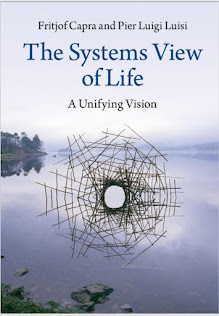It is generally understood that words are like a empty vessel. The moment a writer picks a few words to enunciate his or her feelings, words become free to be interpreted as per the perceptual background of a reader.
Roland Barthes' The Death of Author reflects on the enunciated domain of text, which remains free from the imaginative cage of the author for the open possibilities of its significance. Interpretation is really a serious task, a playful activity, the first condition for epistemic freedom. I'm compelled to write this little know to express my sublime feeling for a transformative work in many ways. Authors in this marvellous work have composed the poetics of systemic thinking, which is missing in the rigorous pursuit of analytics. Not a single epistemic domain is missing in this visionary craft. I want to be a reader for the work which is created with lots of love and passion. Only love transcends the boredom of official routine. The moment a passion is reduced to work. It becomes a heavy burden to carry on. A work like this inspires many readers to think again about their thinking. Descartes' once raised suspicion about everything except his own cogito. But his method limited the domain of knowledge. His method was blessings for many scientists including Galileo, Newton, Bacon, etc. But it has become an obstruction for the holistic thinking in our time. In legal and political philosophy, individualism is reigning the day. Self-interest has caused more harm than good. Our medicine is fragmented, limited, and only concerned with the diagnosis of malady and its cure. Because it is not exploring the possibility of health, environment, community, and the response of mind and body in the larger network of all these fragmentary realities. Our domain of law is detached from nature, community, custom, social and institutional behaviours, transactions. Law is created and changed on the paper. It is established in fragments, without knowing what impact it may have on the people. Economics is completely detached from the socio-political process. There are many experts, writing about micro subjects and universalizing those fragments in the name of science. Does this method explore the larger, systematic picture, which cannot be reduced as the sum of total fragments? Truth is more than a sum of all fragments. Truth could be understood through a network and pattern of the grand organization of all the micro-dusts around floating around us. This work has wonderfully explored all these themes. I must say; it's a great piece of work!

Comments
Post a Comment